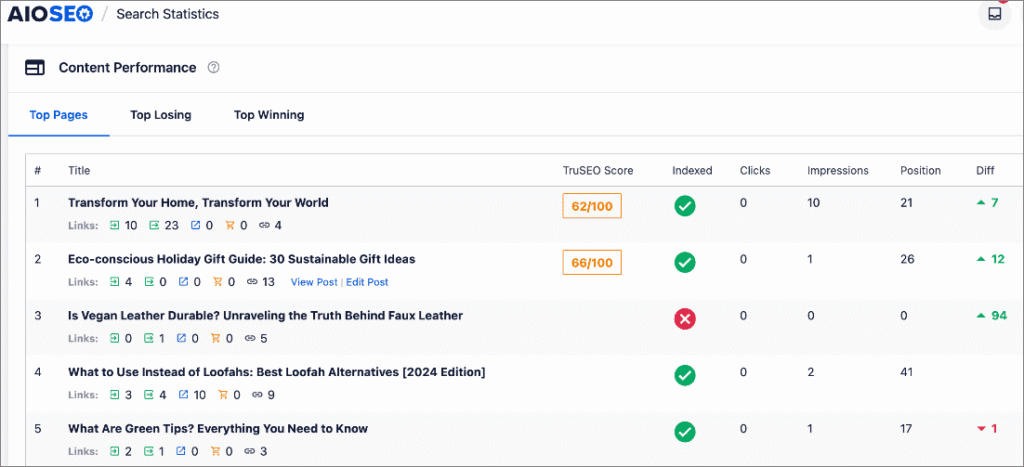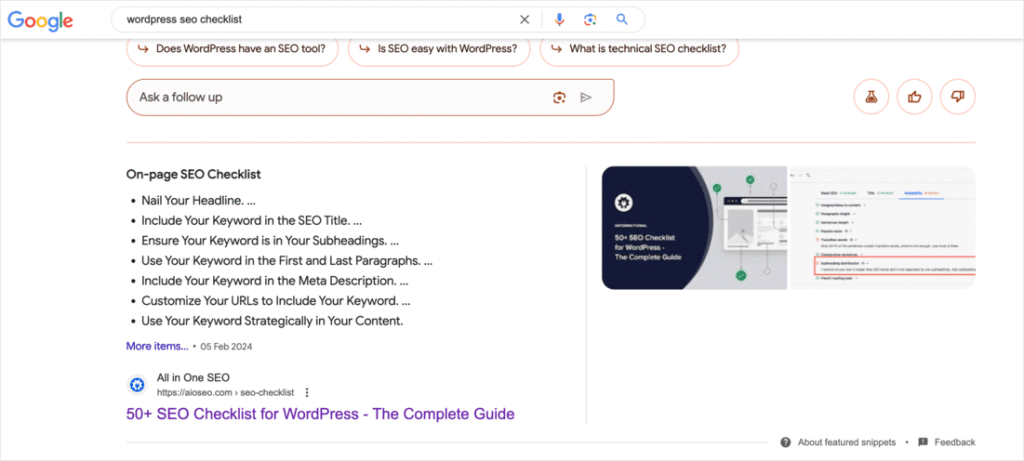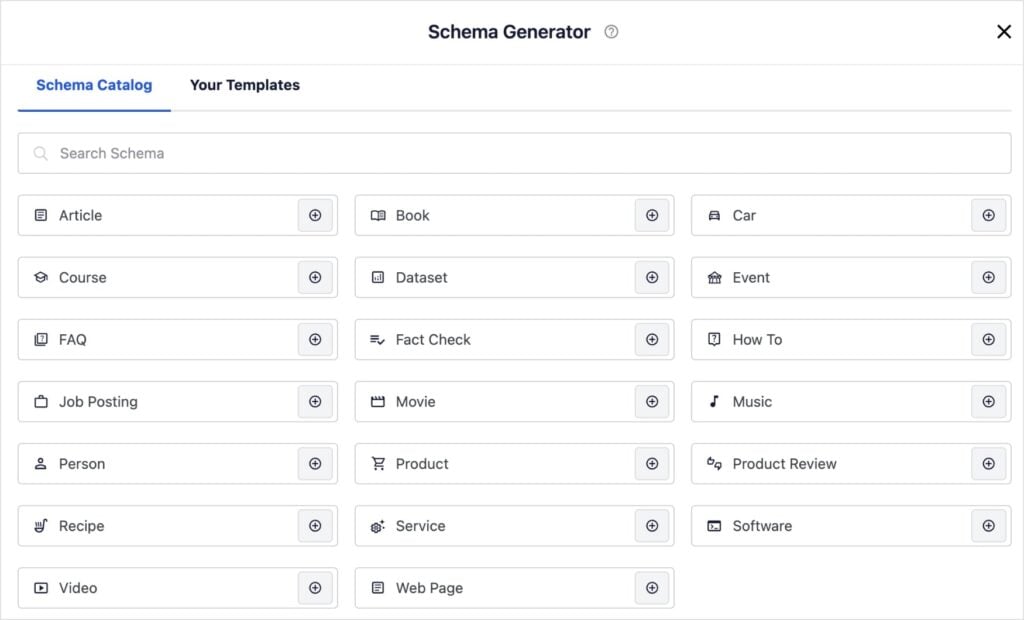Have you ever Googled your business name and felt your heart sink at what showed up?
I remember the first time it happened to me. A single negative review was sitting right on the first page of results, and even though I had dozens of happy customers, that one comment dominated the narrative. It didn’t take long for me to realize that SEO reputation management isn’t just a “nice-to-have”—it’s essential for protecting your brand and driving growth.
Running a successful business today isn’t only about delivering great products or services. It’s about ensuring your online reputation accurately reflects the value you bring. In a world where most people check Google before making a decision, your search results can make or break a sale.
That’s why in this guide, I’ll walk you through exactly how to use SEO reputation management to not only protect your brand but also build credibility, attract more traffic, and generate more revenue.
In This Article
- What Is SEO Reputation Management?
- 9 Easy Tips for Impactful SEO Reputation Management
- 1. Use the Right SEO Tool
- 2. Monitor Your Search Rankings
- 3. Dominate the SERPs for Your Main Keywords
- 4. Optimize for AI Overviews
- 5. Use Reviews to Bolster Your Credibility
- 6. Use FAQs to Address Customer Concerns
- 7. Beef Up Your Image SEO
- 8. Create and Optimize Video Content
- 9. Use Social Media to Reach a Wider Audience
- SEO Reputation Management: An Essential for Growing a Thriving Business
- SEO Reputation Management: Your FAQs Answered
What Is SEO Reputation Management?
SEO reputation management is a digital marketing strategy that uses search engine optimization (SEO) and other techniques to improve how your prospects perceive your brand online.
Let’s back up a bit, so we make this clearer.
Online reputation management (ORM) is the practice of managing how people perceive your brand on search engines and other digital platforms. This involves monitoring online mentions of your brand, products, and services to ensure your business is perceived positively.
However, you won’t always get positive feedback from customers. Sometimes, you may receive negative reviews and comments from people who have interacted with your brand. In other instances, unscrupulous marketers may use negative SEO to tarnish your brand's reputation.
This is where online reputation management comes in.
You can use it to steer the narrative people see in your favor. Doing so helps you protect your brand reputation. It also results in you building brand credibility and authority, leading to more people trusting your brand.
9 Easy Tips for Impactful SEO Reputation Management
Ready to manage your online reputation?
1. Use the Right SEO Tool
SEO reputation management hinges on successful SEO campaigns. This is why you must invest in the best SEO tools. If you’re a WordPress user, it doesn’t get any better than All In One SEO (AIOSEO).

AIOSEO is the best WordPress SEO plugin on the market, trusted by over 3 million savvy website owners and marketers to help them dominate search engine results pages (SERPs) and drive relevant traffic to their sites. This is because the plugin has many powerful SEO features to help you optimize your website for search engines and users, such as:
- Search Statistics: Track your keyword rankings, content performance, and see important SEO metrics with 1-click, and more.
- AI Writing Assistant: Use the power of artificial intelligence (AI) to optimize your content for better search rankings.
- Author SEO: Boost your Google E-E-A-T signals right in WordPress, giving you an edge over competitors.
- AI Content Generator: Automatically repurpose blog posts into FAQs, email copy, key points, social media posts, and more from your blog posts.
- Advanced Robots.txt Generator: Easily generate and customize your robots.txt file for better crawling and indexing.
- Next-gen Schema Generator: Generate and output any schema markup on your site without having to code.
- Link Assistant: Automate internal linking between your pages and audit your outbound links.
- SEO Preview: Get an overview of your search and social snippets and general SEO so you can improve your optimization.
- And more
For step-by-step instructions on how to install AIOSEO, check out our installation guide.
2. Monitor Your Search Rankings
Another important aspect of SEO reputation management is monitoring your rankings for the important keywords for your brand. This helps you understand how much work is required to get your content to the top of SERPs.
Monitoring rankings is easy with AIOSEO, as you can do it right from your WordPress dashboard using the Search Statistics module.

For example, you can use the Keyword Rank Tracker to monitor your SEO performance by keyword:

For more information, check out our tutorial on tracking your keyword rankings.
Or you can monitor your search rankings using the Content Performance report:

Monitoring your rankings helps you know what people see when they search for content related to your brand or business.
If you’re ranking low for your target keywords, then check out our guide on boosting your rankings using Search Statistics.
3. Dominate the SERPs for Your Main Keywords
To effectively drive the narrative around your brand, you need to dominate the SERPs for your target keywords. Perhaps even aim for the featured snippet!

Therefore, if possible, your brand should be among the top 5 spots on the first page. One reason for this is that 75% of users never go past the first page of SERPs. Plus, if you snag position #1, you drive over 27.6% of all the traffic for that keyword.
Ranking on the top page of search engines is no walk in the park. However, if you put in the work, dominating the SERPs will definitely be within your grasp. For tips on doing so, check out our guide to WordPress SEO.
If you want to win at SEO reputation management, then your brand should be the first thing people see on SERPs.
If you are a local business, you can also enhance your chances of ranking by adding Local Business schema.
4. Optimize for AI Overviews
Search is changing fast. Google AI overviews are becoming a key part of how people find information online. AI Overviews summarize answers directly on the search results page, often pulling from multiple trusted sources.

If you optimize your content for these overviews, you can capture attention before users even click (zero-click searches). This makes AI Overviews a powerful tool for building authority and managing your brand reputation.
Here’s how to get your content ready for AI Overviews:
- Answer questions directly: Write short, clear answers (2–4 sentences) for common industry questions, then expand with more detail below.
- Structure your content for scanning: Use subheadings, bullet points, and numbered lists to help AI systems extract key insights.
- Target conversational, long-tail keywords: People often phrase searches as questions or natural statements (e.g., “how to fix a bad business reputation online”).
- Cite authoritative sources: Link to credible references, studies, or trusted sites—AI systems prefer well-supported content.
- Add schema markup: Structured data gives context and improves your chances of being featured.
- Leverage llms.txt: This emerging file format helps AI platforms better understand and cite your content.
The best part? Even if your domain isn’t as established as competitors, a well-structured, well-optimized page can still be surfaced in AI-generated summaries. That means you can punch above your weight, get your brand in front of more potential customers, and strengthen your online reputation.
For more strategies, check out our full guide on ranking in AI Overviews.
5. Use Reviews to Bolster Your Credibility
Word of mouth is one of the most significant contributors to a brand's reputation, both online and offline. It refers to what people say about your brand to others. Granted, you really can’t control the negative things people say about your brand or product. However, you can rally the customers who love your brand and content to write positive reviews.
Once you collect the reviews, you can add review schema to your site so they can be displayed in your search snippets.

Displaying reviews and votes on SERPs is a fantastic way to bolster your credibility and build trust.
Most importantly, it will help you manage your online reputation.
6. Use FAQs to Address Customer Concerns
Another excellent SEO reputation management strategy is to use frequently asked questions (FAQs) to address customer concerns. It’s a great way to manage what people are saying about your brand.

The best way to use FAQs to manage your online reputation is to identify common negative reports about your brand or product. Then, create FAQ sections on your website and relevant content to address these concerns.
To get the most out of your FAQ sections, you should add FAQ schema. This can be easily done using AIOSEO’s Schema Generator.

Adding FAQ schema will help search engines better understand your content. It also helps boost your search engine rankings.
Plus, FAQs give you the advantage of helping you rank in the People Also Ask section (PAA) of SERPs. This increases your visibility and results in more traffic to your site.
7. Beef Up Your Image SEO
Visual search is fast becoming a popular way for people to search the web. Additionally, search engines allocate dedicated real estate on SERPs for images.

Images optimized for search rank high in these search results and result in more traffic for the sites they’re published on.
A big advantage of including images in your SEO reputation management is that most negative reports about your brand won’t contain images. People usually prefer to leave reviews in text form. The chances of you controlling the narrative using images become much higher.
For detailed instructions, check out our guide to image SEO.
8. Create and Optimize Video Content
Video is another content format people love and can thus be used for SEO reputation management. You can leverage this popularity to create engaging videos that educate your audience about your brand and products.
Besides using videos for product education, you can also use this as a channel to build credibility and authority. Ensure that you create video content centered around your target keywords. You can then start a YouTube channel where you publish all your videos. You can also embed them in your articles and other written content.
When creating your videos, ensure you follow video SEO best practices to rank high for your target keywords.
Take a look at our step-by-step tutorial on adding a video sitemap in WordPress. It’s a simple way to help search engines discover and crawl your video content more effectively.
9. Use Social Media to Reach a Wider Audience
Social media plays a huge role in helping you manage your online reputation. One reason for this is that many people use social media platforms to share their experiences with brands. This is why you should create social media profiles for your brand, encouraging customers to interact and share their experiences.
Another reason to include social media in your SEO reputation management is that social media websites have a high domain authority (DA). As a result, it’s common to see a brand’s social media profile ranking high for branded searches. That’s one of the reasons social media drives a whopping 31.24% of all website traffic.
Due to the reasons mentioned above, social media can be a powerful tool for suppressing negative search results on SERPs.
To enhance the effectiveness of your social media profiles in SEO reputation management, you can use our social media integration for WordPress.

This module gives you more control over how your content and images look when you share content on social media. Plus, you can also add different social profiles to your schema. This will help boost your search rankings, giving you more control of the narrative about your brand on search engines.
SEO Reputation Management: An Essential for Growing a Thriving Business
SEO reputation management is an important ingredient in growing a thriving online business. After all, if your reputation is tarnished, people won’t be confident in doing business with you. However, generating leads and driving sales becomes more effortless if you have a positive reputation.
We hope this post helped you learn what SEO reputation management is and how to do it. You may also want to check out other articles on our blog, like our guide on starting a small business blog or our list of the best blogging tools to help you grow your WordPress blog.
If you found this article helpful, then please subscribe to our YouTube Channel. You’ll find many more helpful tutorials there. You can also follow us on X (Twitter), LinkedIn, or Facebook to stay in the loop.
SEO Reputation Management: Your FAQs Answered
What is SEO reputation management?
SEO reputation management is the practice of using SEO strategies to control and improve how your brand appears in search engines. It helps push down negative content, highlight positive mentions, and build credibility so customers trust your business.
Why is SEO reputation management important for small businesses?
Your online reputation directly impacts whether customers choose your business or a competitor. Positive search results drive traffic, leads, and sales—while negative reviews or content can hurt your credibility and revenue.
What role do reviews play in SEO reputation management?
Customer reviews are powerful trust signals. Encouraging satisfied customers to leave positive reviews—and adding review schema to your site—helps boost credibility, improve search visibility, and balance out any negative feedback.
Disclosure: Our content is reader-supported. This means if you click on some of our links, then we may earn a commission. We only recommend products that we believe will add value to our readers.

